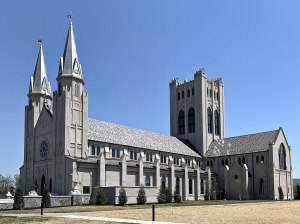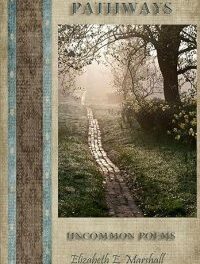We support our Publishers and Content Creators. You can view this story on their website by CLICKING HERE.
By the time of his death, Fr. Allan MacDonald was lauded throughout Scotland for his pioneering scholarship in the field of Celtic studies, for his tireless political campaigning to alleviate the plight of the poor, and for his poetry and translations.
Speed, bonnie boat, like a bird on the wing,
Onward! the sailors cry;
Carry the lad that’s born to be king
Over the sea to Skye.
 The words of “Flower of Scotland,” with which we began the previous essay in this series, evoke the victory of the Scots over the English at the Battle of Bannockburn in 1314. The words with which we begin this essay are from “The Skye Boat Song,” which evokes the escape of Bonnie Prince Charlie “over the sea to Skye” following the defeat of the Jacobite army at the Battle of Culloden in 1746.
The words of “Flower of Scotland,” with which we began the previous essay in this series, evoke the victory of the Scots over the English at the Battle of Bannockburn in 1314. The words with which we begin this essay are from “The Skye Boat Song,” which evokes the escape of Bonnie Prince Charlie “over the sea to Skye” following the defeat of the Jacobite army at the Battle of Culloden in 1746.
The Isle of Skye is one of the many islands off the western coast of Scotland, each of which seems to have a romantic mystique connected to their remoteness from the mainland and from the mania of modern life. They are Scotland’s mystic west. It is to these islands that we will now sail, following in the wake of Bonnie Prince Charlie, as we pick a flower associated with the Scottish islands, Fr. Allan MacDonald, a priest-poet who served the poorest of the poor in the remotest parts of his native land.
Fr. MacDonald was born in the highlands in 1859, thirty years after Catholic emancipation had restored religious liberty to the people of England and Scotland following almost three hundred years of relentless persecution. He spent five years studying for the priesthood at the Royal Scots College in Spain, which had been founded in 1627 to train priests for the illegal and underground Church in Scotland. He had been only sixteen years old when he left for Spain and was only twenty-two years old when he returned to Scotland in 1882 for his ordination.
Fr. MacDonald’s first assignment was to the small fishing town of Oban where most of the locals spoke Gaelic, which the newly-ordained priest did not know well. Rising to the challenge of learning the ancient language of his people, he would soon become so proficient in Gaelic that he is now revered as one of the great Gaelic poets in the Scottish literary canon. He also began to take an intense interest in local oral tradition, recording folklore for posterity, including prayers, hymns, songs, stories, customs, and history. His work in this field has made him one of Scotland’s most important folklorists, who contributed significantly to the preservation and subsequent restoration of Scotland’s Gaelic heritage.
The young priest’s next assignment was to South Uist, an island in the Outer Hebrides, which was, according to Scottish historian John Lorne Campbell, “the most populous, as well as the poorest, island in the Diocese of Argyll and the Isles.” According to historian Roger Hutchinson, it was “the most impoverished Diocese in Britain.” It can be said, therefore, that Fr. Allan MacDonald became a servant of the poorest of the poor.
At 6’ 3” he must have cut an imposing and impressive figure as he walked the rugged landscape of the island ministering to his penurious parishioners, the sheep of his flock, who had been herded off their own land in the previous decades to make way, ironically, for large-scale sheep farming. Such was his imposing presence that he earned the whimsical nickname the “high priest.”
As we picture him in the mists of the mystic west, we might be reminded of Chaucer’s poor parson, the perfect epitome of the parish priest, who, paraphrasing the General Prologue of The Canterbury Tales, was rich in holy thought and work, a learned man, benign and diligent, and fully patient in adversity and content with the barest necessities of life. His parish was wide, with houses far apart, but he did not neglect to visit each of them, from the farthest to the farthest, whether in rain or thunder, in sickness or in strife, always on foot, staff in hand.
Such a life of toiling sanctity takes its toll. According to Roger Hutchinson, his biographer, Fr. Allan MacDonald “wore himself out in the apostolate.” Weather-beaten by the bleak and rain-soaked climate of South Uist and the neighboring island of Eriskay, which he also served, Fr. MacDonald died of pneumonia, pleurisy, and influenza on October 8, 1905, at the age of only forty-five.
By the time of his death, Fr. MacDonald was lauded throughout Scotland for his pioneering scholarship in the field of Celtic studies, for his tireless political campaigning to alleviate the plight of the poor, and for his poetry and translations. Since the late twentieth century, there has been a revival of interest in his life and work, especially in his poetry. It might even be said, with respect to his pioneering role, that he can be considered the father of Scottish Gaelic poetry.
If this is so, it is apt indeed that we should have eulogized this great Scottish Catholic poet with the words of Chaucer, that great English Catholic poet. The two nations, old enemies to be sure, are united in the prayer and prosody of both these heroes of Christendom, one whose praises have been highly sung as the father of English poetry, and the other who remains largely unsung and unknown even in his native land. It is right and just, therefore, that the exalted should sing the praises of the humble. Chaucer praises the poor parson who lays down his life for his sheep. Fr. Allan MacDonald was such a parson. May he be praised.
Republished with gracious permission from Crisis Magazine (June 2024).
This essay is part of a series, Unsung Heroes of Christendom.
The Imaginative Conservative applies the principle of appreciation to the discussion of culture and politics—we approach dialogue with magnanimity rather than with mere civility. Will you help us remain a refreshing oasis in the increasingly contentious arena of modern discourse? Please consider donating now.
The featured image is courtesy of Pixabay.
Share This Story, Choose Your Platform!
Go to Top

 Conservative
Conservative  Search
Search Trending
Trending Current News
Current News 






